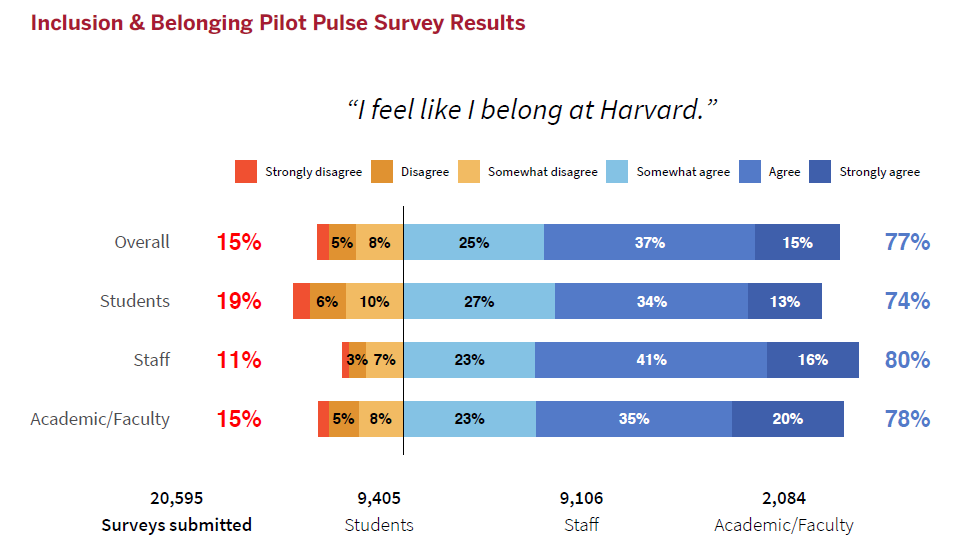A medical career represents not only a professional journey but also a profound commitment to making a tangible difference in people’s lives. As graduates from prestigious institutions like Harvard Medical School, individuals like Jett Crowdis demonstrate that the path to medicine is often shaped by deeply personal experiences, such as the impact of cancer on families. Crowdis’s journey from summer camp counselor to medical student underscores the critical intersection of scientific inquiry and human compassion, particularly in fields like cancer research and internal medicine. With a focus on innovative approaches and a desire to ask important questions, aspiring healthcare professionals can leverage their research background to improve patient outcomes. Ultimately, pursuing a medical career enables individuals to be at the forefront of advancing healthcare while fostering meaningful patient relationships.
Embarking on a profession in healthcare, commonly referred to as a medical career, entails a significant dedication to understanding the complexities of human health and illness. This vital vocation encompasses a variety of specializations, including roles in cancer research and internal medicine, where individuals apply scientific knowledge to enhance patient care and outcomes. The stories of medical graduates, such as those from esteemed institutions like Harvard Medical School, reflect a blend of personal motivation and professional expertise, often catalyzed by poignant experiences like loss and community support. Many future doctors, like Jett Crowdis, find their calling through hands-on involvement in organizations like Camp Kesem, which fosters a deeper appreciation for the emotional dimensions of health. Thus, pursuing a career in healthcare not only offers the opportunity to innovate through research but also to engage with patients on a profoundly human level.
Jett Crowdis: A Journey into Cancer Research
Jett Crowdis’s journey into cancer research began during a pivotal moment at Camp Kesem, where he served as a counselor for children impacted by cancer. This experience ignited a deep empathy within him as he met a young boy dealing with the profound loss of his father to pancreatic cancer. Through listening and connection, Crowdis realized the importance of supporting individuals facing such challenges while also formulating his career aspirations. Entering the realm of cancer research is not merely a profession for Crowdis; it has become a means to harness his scientific curiosity and compassion for others.
His dedication to cancer research was further solidified during his undergraduate years at Harvard, where he interacted with esteemed scientists and participated in impactful research projects. Jett contributed to groundbreaking studies at the Dana-Farber Cancer Institute, engaging with genomic data to unravel the complexities of cancer on a molecular level. This commitment to exploring questions others had yet to ask underscores his passion for fostering innovation within the field. Crowdis exemplifies how merging personal experiences with scientific inquiry can inspire a successful medical career.
Facing Grief and Discovering Purpose
The transformative encounter Jett had while counseling children at Camp Kesem highlights the profound impact emotional experiences can have on one’s professional path. Listening to the heart-wrenching tales of young campers provided Crowdis with a unique perspective on the implications of grief and loss, fostering a keen desire to be a caring, supportive presence in his future medical career. This realization became a guiding principle for Crowdis, influencing his approach to patient care and highlighting the importance of empathy in the medical field.
As he navigated his academic journey through Harvard, Crowdis embraced both the scientific and emotional aspects of medicine. His experiences at Camp Kesem fueled his interest in research, leading him to explore innovative solutions for cancer treatment. The intersection of personal experiences with rigorous scientific inquiry taught him that medicine is not only about diagnosis and treatment but also about understanding the individual behind the illness. This blend of compassion and curiosity is what Jett Crowdis will carry forward into his medical career.
### The Role of Mentorship in Medical Training
Throughout his academic journey, mentorship has played a crucial role in shaping Jett Crowdis’s path into medicine. At Harvard Medical School and during his work at the Dana-Farber Cancer Institute, he benefited immensely from the guidance of mentors like Professor Eliezer Van Allen. Their collaborative efforts enabled Crowdis to merge his computational skills with crucial cancer research, further establishing a solid foundation for his future career. Mentorship not only provided academic support but also expanded Crowdis’s professional network within the medical community.
Moreover, mentors have the unique ability to inspire and challenge students to reach new heights. Under the tutelage of esteemed professors, including those at Harvard, Crowdis honed his critical thinking and analytical abilities, which are essential for any aspiring medical professional. This mentorship relationship has not only shaped his research interests but also reinforced the significance of collaboration and support in the medical field, emphasizing the importance of nurturing future leaders in medicine.
Balancing Research and Clinical Practice
As Jett Crowdis prepares to embark on his residency at Yale New Haven Hospital, he faces the exciting challenge of balancing research interests with clinical practice in internal medicine. His diverse academic background has equipped him with the skills and knowledge to contribute to both arenas effectively. Crowdis’s research experiences have instilled in him a strong commitment to evidence-based practice, which will serve him well in clinical settings.
While his research on cancer genomics laid the groundwork for his understanding of complex medical conditions, Crowdis is eager to apply this knowledge directly to patient care. Internal medicine, with its emphasis on comprehensive patient interactions, aligns perfectly with his desire to engage thoughtfully with individuals facing health challenges. Jett Crowdis exemplifies the evolving role of physicians today, acknowledging the importance of research while valuing the human elements of medicine.
The Importance of Compassionate Care in Medicine
In an era where healthcare tends to emphasize efficiency and technical skills, Jett Crowdis has recognized the invaluable role of compassion in medicine. His time at Camp Kesem, where he listened to children processing grief and loss, highlighted for him that medicine extends beyond treatments and diagnoses. The emotional and psychological dimensions of patient care are equally vital, and Crowdis is dedicated to creating meaningful connections with his future patients.
Understanding that each patient has a unique story drives Crowdis’s commitment to compassionate care. His desire to engage meaningfully with patients stems from those formative experiences at camp, where he learned the power of simply listening. In his future practice, Crowdis aims to foster an environment where patients feel valued and understood, reinforcing the notion that empathy is as crucial to healing as medical knowledge.
Integrating Technology in Modern Medicine
Jett Crowdis’s journey through the field of medicine is also marked by his innovative use of technology, particularly in cancer research. His experience in computational biology has allowed him to merge traditional biology with cutting-edge techniques, setting him apart as a future physician who values data-driven decision-making. As he transitions to residency in internal medicine, Crowdis is eager to apply these technological advancements to improve patient outcomes and enhance healthcare delivery.
The integration of technology in medicine is rapidly gaining traction, and Crowdis understands its immense potential to revolutionize patient care. By leveraging genomic data and computational analysis, he aims to contribute to individualized treatment plans that cater to the unique needs of each patient. His ability to navigate the intersection of technology and medicine positions him as a forward-thinking medical professional, ready to adapt and innovate in a constantly evolving field.
Building a Sustainable Future in Healthcare
As Jett Crowdis looks towards the future of healthcare, he is committed to building a sustainable model that prioritizes patient well-being and advances medical research. His journey thus far has instilled in him a firm belief in the importance of integrating care and compassion while acknowledging the systemic challenges that exist within the healthcare industry. Crowdis aspires to be a change agent, advocating for more inclusive practices that address disparities in patient care.
Sustainability in healthcare extends beyond clinical practice—it involves fostering environments where research can thrive and where healthcare professionals can collaborate for greater impact. Crowdis envisions a medical landscape that not only values scientific inquiry but also emphasizes social responsibility. By intertwining his research efforts with a focus on the emotional aspects of patient care, he aims to champion a model of healthcare that is holistic, equitable, and sustainable for generations to come.
Preparing for a Diverse Medical Landscape
Entering residency in internal medicine at Yale New Haven Hospital adds another layer of complexity and excitement to Jett Crowdis’s career path. He will encounter a diverse patient population and a variety of medical conditions, further enriching his medical education. The ability to adapt and respond to differing patient needs is a crucial skill that Crowdis has cultivated through his extensive experiences at Camp Kesem and in research settings.
Diversity in the medical landscape also involves embracing differences in cultural backgrounds and understanding how these factors influence health and healthcare access. Crowdis is keenly aware of the necessity of addressing health disparities, a commitment that has been informed by his personal experiences and academic training. His goal is to approach medicine with cultural competence, ensuring that all patients receive the respectful and individualized care they deserve.
The Impact of Early Experiences on Medical Aspirations
Jett Crowdis’s early experiences at Camp Kesem have created a lasting impact on his aspirations within the medical field. The emotional depth he encountered while supporting young campers crystallized his understanding of the multi-faceted nature of healthcare. This has led him to pursue a career that is not only grounded in scientific inquiry but also deeply rooted in interpersonal connection and empathy.
Recognizing the power of adolescent emotions in shaping future medical professionals, Crowdis holds steadfast to the idea that personal experiences can inform one’s career path. His engagement with children navigating grief has reinforced his belief in the necessity of a patient-centered approach in medicine. As he steps into his residency, he carries with him the lessons learned from those early encounters, preparing to make a meaningful difference in the lives of his future patients.
Frequently Asked Questions
What inspired Jett Crowdis to pursue a medical career at Harvard Medical School?
Jett Crowdis was inspired to pursue a medical career after serving as a camp counselor at Camp Kesem, where he connected with children whose parents had cancer. This profound experience of listening to a boy whose father passed away from pancreatic cancer motivated him to merge his interests in science and patient care, ultimately leading him to Harvard Medical School.
How does Jett Crowdis integrate cancer research into his medical career?
During his medical career journey, Jett Crowdis worked in the lab of Dr. Eliezer Van Allen at the Dana-Farber Cancer Institute, focusing on cancer research that employs computational biology. His research specifically analyzed genomic data from cancer patients, contributing to important insights into cancer treatment and care, thus intertwining his medical career with cancer research.
What role did computational biology play in Jett Crowdis’s preparation for his medical career?
Computational biology significantly shaped Jett Crowdis’s preparation for his medical career. While interning in Dr. Joan Brugge’s lab, he learned coding to better analyze research results. This skill was crucial during his time in Dr. Van Allen’s lab where he utilized computational methods to examine genomic data related to prostate cancer, enhancing his qualifications for a future in medicine.
How does Jett Crowdis view the significance of internal medicine in his medical career?
Jett Crowdis sees internal medicine as a fascinating field that allows for meaningful patient interactions, akin to his experiences at Camp Kesem. He appreciates that internal medicine offers a blend of diagnostic challenges and the opportunity to spend quality time with patients, which aligns with his desire for a fulfilling medical career.
What experiences did Jett Crowdis have during his time at Harvard Medical School?
At Harvard Medical School, Jett Crowdis engaged in extensive research while maintaining strong connections with mentors. He examined the adverse reactions linked to checkpoint blockade immunotherapy in the lab of Arlene Sharpe, alongside his work on cancer research projects in Dr. Van Allen’s lab, reflecting the diverse experiences he gained essential for his future medical career.
| Key Point | Details |
|---|---|
| Jett Crowdis’ Motivation | Inspired to pursue a medical career after connecting with a child grieving the loss of a parent at Camp Kesem. |
| Educational Journey | Started at Harvard with a molecular biology focus, transitioned to computational biology, and self-taught programming to enhance research capabilities. |
| Research Experience | Worked in labs focusing on cancer genomics and immunology; published findings in Cell Genomics highlighting patient engagement in research. |
| Future Aspirations | Matched with Yale New Haven Hospital for a residency in internal medicine, aiming to maintain a patient connection similar to experiences at Camp Kesem. |
Summary
A medical career offers an incredible journey of connection, compassion, and discovery, as exemplified by Jett Crowdis. His experiences working with children affected by cancer not only inspired his path in medicine but underscored the profound impact empathy can have in healthcare. Aspiring medical professionals should follow similar passions, intertwining personal experiences with scientific interests, to foster a fulfilling and meaningful career in medicine.




